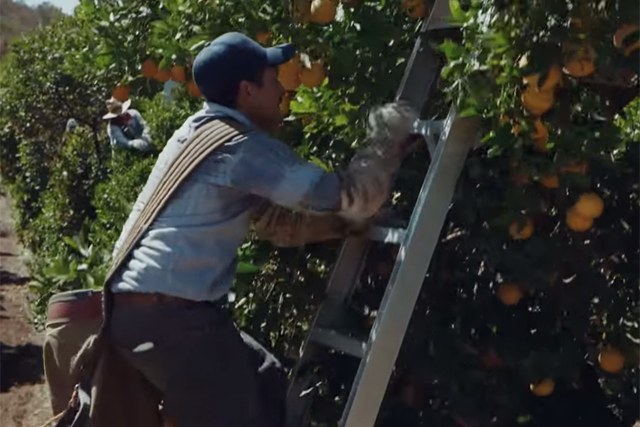
In a perfect world, what was good for other people, the planet and us would also be what most people would want to buy, most of the time.
But as obesity rates rise, income gaps grow and natural resources deplete, it’s increasingly obvious that things are out of kilter.
Hence why the sustainability movement is so keen to embrace the marketing community. As architects-cum-alchemists of consumer desirability, marketers are seen as holding the power to effect a demand tipping point towards healthier, fairer more sustainable lifestyle choices. And in the process, square what’s good for customers with what’s good for business.
Yet until now, sustainability types have felt their advances broadly rejected or at best feebly reciprocated as marketers ask themselves if consumers really do see better value in better values?
At least one major US retailer is pinning its hopes on the answer being yes.
Whole Foods, the Austin-based organic supermarket giant, has just launched its first ever nationwide ad campaign in the US, in a desperate attempt to reverse a slump in sales and share price.
It's estimated that the company is spending up to $20 million on a campaign that will run on television, in print, online, outdoors and in its 399 stores until December. This is four times more than Whole Foods spent on advertising last year.
It comes as Whole Foods has disappointed investors with consecutive quarters of slow same-store sales growth and stock that has lost more than 43 percent of its value, falling from a high of $65.24 per share in October 2013 to $39.94 per share last week.
The natural foods retail giant is now seeking to buck the downward trend by putting its "values" at the centre of the group's biggest ever brand marketing campaign in its 35-year history.
The Whole Foods ad declares 'the time is right to champion the way food is grown, raised and caught'
The voiceover in Whole Foods’ 60 second declares: "We are hungrier for better than we ever realised. We want to know where our food comes from. We want to trust our sources. We want people and animals and the places our food comes from to be treated fairly. The time is ripe to champion the way food is grown and raised and caught. So it’s good for us, and for the greater good, too. This is where it all comes to fruition. This is where values matter. Whole Foods Market, America’s healthiest grocery store."
This central narrative plays out in a suite of separate commercials. Ads for beef talk about buying cattle "who’ve had room to roam" by "people with responsible ranching practices". And in a commercial for Whole Foods produce, the voiceover describes how its fruits and vegetables "support organic and sustainable farming" and are grown with "our ethical trade program".
Will it pay off? For Whole Foods’ sake, hopefully, yes. But there is a danger consumers may find these stories too worthy and abstract to elicit a real strength of feeling. A bit like ad: logical and light-hearted but leaves you a little cold.
Which is why the whole movement to market ‘sustainability’ feels like it's still trying to find its level.
Either the values message comes across in campaigns as bolted on - rather than built into - the product benefit, as in Innocent’s ad where we are told the fictional character ‘Mark’ has unwittingly triggered a ‘chain of good’ by buying a smoothie, "because 10% of Innocent’s profits go to charity".
The whole movement to market sustainability feels like it's still trying to find its level
Or the vision painted by commercials becomes so big and soaring that it’s the products themselves that feel like bolted-on sub-plots. There is a touch of this even in where the brands referenced at the end feel like rude mechanicals to Paul Polman's ‘higher purpose’ protagonist.
Faced with a similar challenge, Chipotle Mexican Grill has taken the bold decision to market its values without any reference to its products or indeed Chipotle itself. Earlier this year, the US-based restaurant chain released ‘Farmed and Dangerous’, a four-part comedy series on the TV-streaming service satirising industrialised farming methods.
This "stealth marketing strategy", Chipotle executives told the , is not about "product integration", but "values integration". is meant to change the debate on agricultural production and advance its anti-industrial-farming agenda. Both of which, for a brand whose mantra is ‘Food With Integrity’, are vital to growth and customer differentiation.
Playing the strategic long-ball, not by promoting burritos but by building the favourable social conditions that may hopefully lead to more of its burritos being sold, will not be the right values strategy for every brand. But it does serve to show the creative possibilities open to brands who agree with the narrator of Whole Foods’ that "values" are becoming "inseparable" from the "value" consumers look for.
Read next


.jpg)


.jpg)